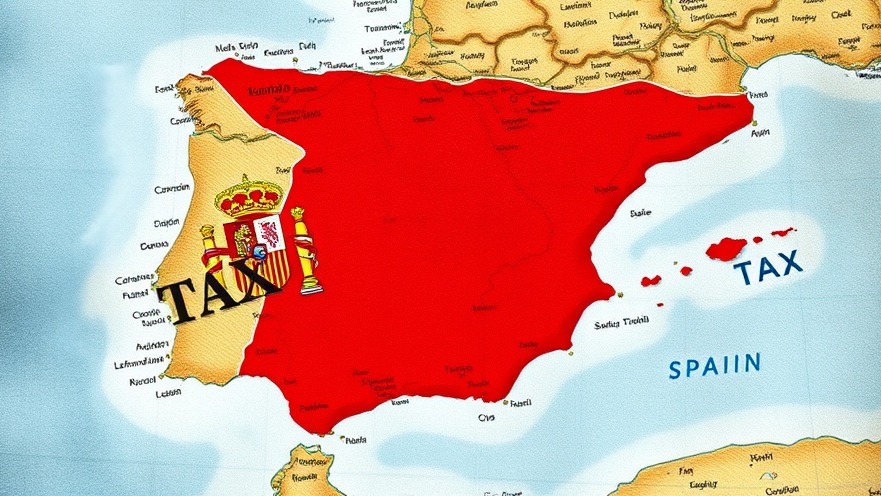For expats moving to or already living in Spain, understanding how taxes work is essential to financial stability and peace of mind. Spain offers a unique blend of tax laws, special regimes like the Beckham Law, and bilateral treaties that can benefit foreign nationals—if navigated correctly. This comprehensive guide breaks down the Spanish tax system as it applies to expats in 2025, from residency rules to income taxes, inheritance regulations, and crucial compliance tips.

Understanding Tax Residency in Spain
The cornerstone of expat taxation in Spain is tax residency. According to Spanish law, you're considered a tax resident in Spain if:
You spend more than 183 days in Spain in a calendar year (January 1–December 31).
Your center of economic interests is located in Spain (e.g., business, investments, family).
Even if you split your time among countries, the Spanish tax authorities (Agencia Tributaria) may still deem you a resident based on these rules.
Tip: Residency rules vary by region (autonomous communities), so it’s wise to speak to a Spanish tax expert for personalized analysis.
The Beckham Law in Spain: Tax Perks for Expats
Spain's Beckham Law, officially known as the “Special Expat Tax Regime,” offers generous tax benefits for expats, especially for high earners and professionals moving to Spain for work.
Key Features:
Flat 24% tax rate on Spanish-sourced income up to €600,000 for six years.
No tax on foreign-sourced income, such as dividends, capital gains, or rental income abroad.
Available to individuals who haven't been tax residents in Spain for the last 10 years.
Eligibility Requirements:
Must be employed by a Spanish company or transferred to Spain by a foreign employer.
Application must be made within six months of registering with Spanish social security.
The regime is ideal for executives, digital nomads, and Americans in Spain with substantial foreign income.
Income Tax in Spain for Expats
Spain has a progressive income tax system, but how it applies to you depends on your residency status.
For Tax Residents:
Income is taxed at progressive rates ranging from 19% to 47%, depending on income levels and region.
Examples of Taxable Income:
Salaries and wages
Rental income (both in Spain and abroad)
Investment income and capital gains
Pensions
Spain also imposes social security contributions and has a habitual residence tax credit in certain regions.
For Non-Residents:
Income sourced from Spain is taxed at a flat rate of 24% (or 19% for EU/EEA residents). This includes:
Rental income from Spanish property
Earnings from work conducted in Spain
Dividends from Spanish companies
Capital Gains and Investment Taxes
Capital gains tax applies to profits from selling assets like property or stocks. Rates depend on the amount:
Up to €6,000: 19%
€6,001 to €50,000: 21%
€50,001 to €200,000: 23%
Over €200,000: 26%
Capital losses may be carried forward for four years, helping to reduce future tax liabilities.
Inheritance and Gift Tax in Spain
Spain applies inheritance and gift tax (Impuesto sobre Sucesiones y Donaciones) based on:
The relationship between the donor and recipient
The region where the recipient resides
The value of the inheritance or gift
Tax rates can range from 7.65% to 34%, and exemptions vary by region. Expats should engage in trust planning or estate structuring early to minimize liabilities.
Avoiding Double Taxation
Spain has tax treaties with over 90 countries, including the United States and the UK, to prevent double taxation.
Expats can claim:
Foreign Tax Credits
Exemptions for certain income types
Use of FATCA and FBAR compliance services to stay aligned with U.S. regulations
If you're a U.S. citizen, you're still required to file U.S. tax returns annually (even if you live abroad). Platforms like TFX help with fbar and fatca compliance.
Filing Requirements and Deadlines
The Spanish tax year runs from January 1 to December 31. The Spanish tax return (Modelo 100) is typically due between April and June of the following year.
Filing Musts:
Declare global income if a tax resident
Submit Form 720 to disclose overseas assets over €50,000
Report rental income, even if offset by mortgage interest or expenses
Include all capital gains and losses
Missing deadlines may lead to penalties or a letter from the IRS (for Americans), so planning ahead is essential.
Special Considerations for Americans in Spain
U.S. expats face unique challenges:
Must file both Spanish and U.S. returns
May qualify for Foreign Earned Income Exclusion (FEIE) or Foreign Tax Credit
Must report foreign accounts over $10,000 via FinCEN Form 114 (FBAR)
Estate planning is complicated due to U.S. estate and gift tax laws
Consulting with an international tax expert familiar with both jurisdictions is vital.
Property and Real Estate Taxes
If you own property in Spain:
You’ll owe IBI (property tax) annually, based on the cadastral value.
Non-residents with holiday homes must pay deemed income tax, even if the property isn’t rented.
If you sell your main home, exemptions may apply depending on age (e.g., 65 and selling) or reinvestment in another home.
Spanish real estate investments can be lucrative but require careful tax planning.
The Solidarity Tax: A New Burden for High-Net-Worth Expats
In 2023, Spain introduced the Solidarity Tax on wealth above €3 million. This affects many high-net-worth expats.
Key Details:
Rates range from 1.7% to 3.5%
Applies to worldwide assets for tax residents
Non-residents are only taxed on Spanish assets
Regions like Madrid offer exemptions, so where you live matters greatly.
Common Tax Mistakes to Avoid
Failing to register as a tax resident correctly.
Ignoring asset reporting requirements like Modelo 720.
Believing foreign income is automatically exempt.
Underestimating regional tax differences.
Missing filing deadlines or relying on outdated advice.
How to Apply for the Beckham Law Regime
Here’s how to take advantage of this tax-saving strategy:
Confirm eligibility with your employer.
Register with Spanish Social Security.
File the Form 149 within 6 months of starting work.
Wait for approval from Agencia Tributaria.
Once approved, the flat tax rate applies automatically to qualifying income.
Offshore Bank Accounts and Wealth Management
Holding an offshore bank account is legal, but transparency is required. Use them to manage currency exchange, investments, or international business, but report everything to avoid penalties.
A private wealth adviser or expat financial advisor can help manage:
Offshore investments
Pension income
Currency transfers
Wealth preservation strategies
Personalized Tax Help for Expats
If you’re overwhelmed by Spanish tax requirements, you’re not alone. Platforms like TFX and PWC Spain offer:
Personalized tax prep quotes
One-on-one consultations
Help with amended tax returns
Guidance on IRS letters
And even trust planning services
Conclusion: Take Charge of Your Expat Taxes
Navigating expat taxes in Spain doesn’t have to be daunting. Whether you're a new arrival, retiree, or American citizen, proper planning, expert help, and awareness of tax laws can dramatically improve your financial future.
By understanding your obligations, applying strategic tax regimes like the Beckham Law, and filing correctly, you can optimize your tax position, avoid penalties, and enjoy your life in Spain stress-free.
 Add Row
Add Row  Add
Add 




Write A Comment